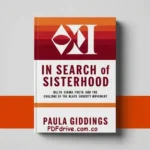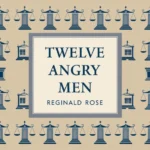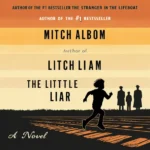Introduction
Words shape our world, our perceptions, and our identities. In Pip Williams’ novel, “The Dictionary of Lost Words PDF,” the significance of words and language takes center stage. This captivating story, set against the backdrop of the creation of the Oxford English Dictionary, explores themes of feminism, social class, and the power of words. Join me as we delve into the rich tapestry of this novel, uncovering the lost words and the stories they tell.
| Name of PDF | The Dictionary of Lost Words |
|---|---|
| No Pages | 55 |
| Author | Pip Williams |
| Originally Published | March 31, 2020 |
| Language | English |
| Genres | Historical Fiction, Novel, Biographical Fiction |
| Size | 4.16 MB |
| Chek, latest edition |
Table of Contents
About the Author
Pip Williams is an Australian author whose passion for words and history shines through in her writing. With a background in social science and a deep love for literature, Williams brings a unique perspective to her storytelling. “The Dictionary of Lost Words” is her debut novel, inspired by her fascination with the Oxford English Dictionary and the stories behind the words it contains.

Plot Summary
Set in the early 20th century, “The Dictionary of Lost Words” follows the journey of Esme Nicoll, a young girl who grows up in the Scriptorium, where the Oxford English Dictionary is being compiled. Surrounded by words, Esme becomes intrigued by the ones that are discarded or deemed unimportant. As she grows older, she starts to collect these “lost words,” recognizing their significance and the stories they hold.
Esme’s journey is intertwined with the lives of several key characters, including her father, who works on the dictionary, and Lizzie, a maid in the Scriptorium who becomes a close friend. Together, they navigate the societal challenges of their time, including issues of gender and class, while uncovering the hidden power of language.
Themes and Motifs
The Power of Words
Words have the power to define and shape our reality. In “The Dictionary of Lost Words,” this theme is explored through Esme’s quest to preserve the words that are overlooked. The novel highlights how words can be a tool for empowerment, resistance, and connection.
Feminism and Gender Roles
The novel delves into the roles of women in early 20th-century society. Esme’s journey reflects the struggles and triumphs of women in a patriarchal world, challenging the traditional gender norms and advocating for equality.
Social Class and Inequality
The story also addresses the issue of social class, depicting the disparities and injustices faced by the working class. Through the characters’ interactions and experiences, Williams portrays the impact of class on individuals and their opportunities.
Historical Context
Set during the creation of the Oxford English Dictionary, the novel provides a glimpse into the historical and cultural landscape of the time. It paints a vivid picture of the early 20th century, highlighting the societal changes and challenges of the era.
Character Analysis
Esme Nicoll
Esme is the heart of the novel, a curious and determined protagonist whose love for words drives the narrative. Her journey from a young girl to a strong, independent woman is both inspiring and poignant.
Lizzie
Lizzie, the maid in the Scriptorium, plays a significant role in Esme’s life. Her friendship and support are crucial to Esme’s development, and her own experiences reflect the struggles of the working class.
Dr. Murray
Dr. Murray, the editor of the Oxford English Dictionary, represents the intellectual and authoritative figure in the novel. His relationship with Esme and his role in the dictionary’s creation are central to the story.
Other Significant Characters
The novel features a rich cast of characters, each contributing to the tapestry of the story. From Esme’s father to the suffragettes she encounters, each character adds depth and dimension to the narrative.
Historical Accuracy
Pip Williams meticulously researched the historical context of her novel, ensuring that the representation of the early 20th century and the Oxford English Dictionary’s compilation is accurate. The novel weaves historical facts with fiction, creating a believable and immersive experience for readers.
The Role of the Oxford English Dictionary
The Oxford English Dictionary is more than just a backdrop for the novel; it is a character in its own right. The process of compiling the dictionary, the challenges faced, and the importance of each word selected are integral to the story. Williams captures the dedication and passion of the lexicographers who worked on this monumental project.

Feminism and Gender Roles
In the context of the novel, feminism and gender roles are explored through Esme’s experiences and the historical events of the time. The suffrage movement and the fight for women’s rights are central themes, highlighting the resilience and determination of women in a male-dominated society.
Social Class and Inequality
The novel doesn’t shy away from addressing social class and inequality. Through characters like Lizzie and the working-class women Esme encounters, Williams portrays the stark realities of class disparities and the limited opportunities available to the lower classes.
Language and Its Impact
Language is a powerful tool that can shape identities, influence perceptions, and create connections. “The Dictionary of Lost Words” emphasizes the importance of preserving words and recognizing their significance. The novel invites readers to reflect on their own relationship with language and its impact on their lives.
Critical Reception
“The Dictionary of Lost Words” has been widely praised for its rich storytelling, historical accuracy, and emotional depth. Critics have lauded Williams’ ability to blend history and fiction, creating a compelling narrative that resonates with readers. The novel has received several awards and has been a popular choice for book clubs and literary discussions.
Literary Style
Pip Williams’ writing style is both lyrical and accessible. She uses vivid descriptions, engaging dialogue, and thoughtful reflections to draw readers into the world of her characters. The novel’s use of symbolism and metaphors adds depth to the narrative, making it a rich and rewarding read.
Personal Reflections
“The Dictionary of Lost Words” resonates with readers because it speaks to the universal themes of identity, language, and empowerment. The novel’s exploration of words and their meanings invites readers to consider the stories behind the words they use every day. It also highlights the importance of preserving voices that are often overlooked or forgotten.
Conclusion
In “The Dictionary of Lost Words,” Pip Williams has crafted a beautiful and thought-provoking novel that celebrates the power of language and the resilience of women. Through the story of Esme Nicoll, readers are reminded of the importance of words and the impact they have on our lives. This novel is a must-read for anyone who loves words, history, and stories of empowerment.
FAQs about The Dictionary of Lost Words PDF
What is “The Dictionary of Lost Words” about?
“The Dictionary of Lost Words” follows the journey of Esme Nicoll, a young girl who grows up in the Scriptorium where the Oxford English Dictionary is being compiled. She collects discarded words and uncovers their significance and the stories they hold.
Who is the author of the novel?
The author of the novel is Pip Williams, an Australian writer with a background in social science and a passion for literature and history.
How accurate is the historical representation in the book?
The novel is meticulously researched and provides an accurate representation of the early 20th century and the process of compiling the Oxford English Dictionary.
What are the main themes of the novel?
The main themes of the novel include the power of words, feminism and gender roles, social class and inequality, and the historical context of the early 20th century.
Why should you read “The Dictionary of Lost Words”?
You should read “The Dictionary of Lost Words” because it offers a rich and engaging story that celebrates language, highlights historical and social issues, and provides a poignant reflection on the power of words and the importance of preserving forgotten voices.
What is The Dictionary of Lost Words based on?
True events
What is the theme of The Dictionary of Lost Words?
The Relationship between Language and Community
What is the super summary of The Dictionary of Lost Words?
Chronicles (in historical fiction fashion) how the first Oxford English Dictionary came to be
Is there romance in The Dictionary of Lost Words?
A bit of romance




